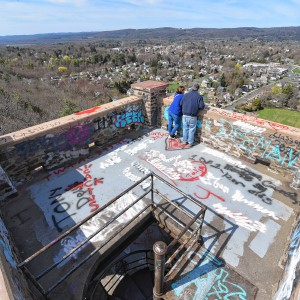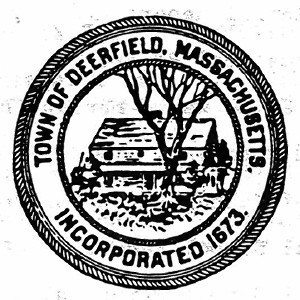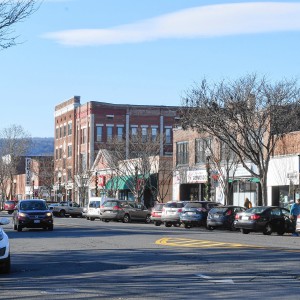Fiddler David Kaynor remembered for his music and welcoming spirit
| Published: 06-03-2021 8:29 PM |
MONTAGUE — There are so many circles that connect us, so many communities that touch upon other communities, so many inspirational figures in our midst that help us find a sense of purpose and that bring people together.
David Kaynor’s death Tuesday night, after the 73-year-old fiddler-caller’s long battle with Amyotrophic Lateral Sclerosis, ALS, also known as Lou Gehrig’s disease, was hardly unexpected. The declining health of this nationally known teacher, musician and composer had been on everyone’s radar for more than two years. Locally, Kaynor launched the Greenfield contra dance in the early 1980s and led its Friday string band through jigs, reels, hornpipes and waltzes that sent dancers sailing across the Guiding Star Grange floor.
In fact, for the 900 followers of the “Tune-Raiser for David” group on Facebook, who stayed connected with Kaynor for 18 months during the pandemic and showered him with fiddle tunes, there seemed almost an audible collective sigh when he finally succumbed to the fatal disease for which he’d been cared for at home by three close friends.
This self-taught fiddler, who went on to hold fiddling workshops across the country and to lead the Fiddle Orchestra of Western Massachusetts as well as the Vermont Fiddle Orchestra, also hosted weekly jam sessions in Montague Center, where he’d lived since 1982. There he invited beginner and experienced musicians alike to share in a welcoming spirit that was unusual for players of his caliber.
On his April 17 birthday, he was awarded Country Dance and Song Society’s Lifetime Achievement Award in April “in recognition for his enormous contributions as a dance community organizer, musician, caller and mentor to generations.”
Kaynor — whose cousins from North Amherst also helped revive contra dancing and contra music in the 1980s — wrote, “My response to numerous real or perceived organizational snubs was to submerge myself in the pleasures of the moment in my core interests and pursuits: Long-distance running, cross country skiing, dancing, calling dances, teaching basic Swedish dances, teaching basic fiddling and playing music. … Eventually, I found a niche as a teacher and caller. This led to countless gigs in which I enjoyed a happy integration of my artistic, spiritual and political ideals, and having to earn enough money to get by.”
He added, by summoning his eye movements to type his message, “We didn’t just perform music and dance. We SHARED it. This became a fundamental personal philosophy: There are times and places for performing, but sharing can happen so much more often, and it’s good for us all. Maybe it’s even good for the world.”
Even after ALS began weakening his ability to speak, ending his career as a caller, Kaynor continued to share, at the Monday night jams and at Guiding Star Grange dances leading a wide-open and welcoming backup band that allowed players to gain confidence along with experience.
Article continues after...
Yesterday's Most Read Articles
“That Grange became so important to my life, as a major center of community and community spirit, which David fully embodied,” wrote caller David Eisenstadter on Wednesday. “Welcoming and joyful, I’ll always remember his strong yet gentle voice guiding dancers from figure to figure and his bright fiddle playing. It was always a pleasure to hear stories of his encyclopedic knowledge of tunes and music, which has been an inspiration to so many.”
His commitment to building community was so strong that when the Greenfield and Montague Grange began struggling to find younger members, Kaynor encouraged dancers to join. He also spearheaded fundraising campaigns for renovation at both Grange halls, and helped form a group to buy the Montague Grange to preserve it as the Montague Common Hall. There, the space where he called dances and arranged concerts of visiting Quebecois, Swedish and Cajun fiddlers was dedicated last year as the David Kaynor Music and Dance Hall. (Donations to both halls in his memory are being suggested by Kaynor’s close friends.)
He opened doors for musicians and dancers alike.
“The thing I think David’s done best in his life is he’s encouraged hundreds of people who probably never really saw themselves as up-and-coming musicians,” said Northfield resident Susan Secco, who Kaynor helped hone piano skills to play at dances. “There was always an open-door policy on stage. He’s had a mission, trying hard to break down barriers.”
Dancer Ray Sebold of Montague added, “One of the things David has been very clear on is that he doesn’t like an exclusivity to dancing. From the get-go, he was always against an ‘experienced’ dance for more advanced dancers.”
Always enthusiastic and full of humor, Kaynor helped organize and lead the Montague May Day celebration for more than 20 years and was celebrated in his wheelchair at the past two scaled-down events, this year and last.
He favored traditional music and dance, but this Wilbraham-reared musician used a speech synthesizer when ALS made speaking too difficult. And using eye-gaze technology, after the muscles in his hands and fingers lost their ability to use a keyboard, he was able to write emails and, incredibly, to continue composing intricate fiddle tunes.
“More than the ventilator, it was music and community that kept David alive all that time,” wrote Will Quale, who along with Becky Hollingsworth and Rebecca Weiss nursed their friend at home before sudden deterioration sent him to the hospital.
“In the three weeks before his fever, David composed music at a furious pace: six tunes (with harmony parts), including three in the final pre-fever week,” Quale added.
In the wake of his death, Wake Robin Morris danced in Kaynor’s honor Wednesday night on the Montague Common, as a small cluster of musicians played his tunes. All of these spontaneous memorials emphasize the connectedness and active participation epitomized by Kaynor’s life.
So, too, did Wednesday’s public singing circle on the Montague Common, meeting for its 441st consecutive gathering — the same daily sing Kaynor had visited in his wheelchair several times — with a dozen or so friends honoring him by singing one of his many favorite anthems, “Here Is My Home,” by Si Kahn.
Now retired, Richie Davis was a writer and editor for more than 40 years at the Greenfield Recorder.

 $50K allocated for Poet’s Seat Tower sandblasting as officials mull vandalism prevention
$50K allocated for Poet’s Seat Tower sandblasting as officials mull vandalism prevention Deerfield voters to decide 8 capital projects at Town Meeting
Deerfield voters to decide 8 capital projects at Town Meeting Shelter money fading, but ‘not at the end of the line’
Shelter money fading, but ‘not at the end of the line’ Greenfield City Council approves borrowing $1.18M for Main Street redesign, sewer repairs
Greenfield City Council approves borrowing $1.18M for Main Street redesign, sewer repairs
